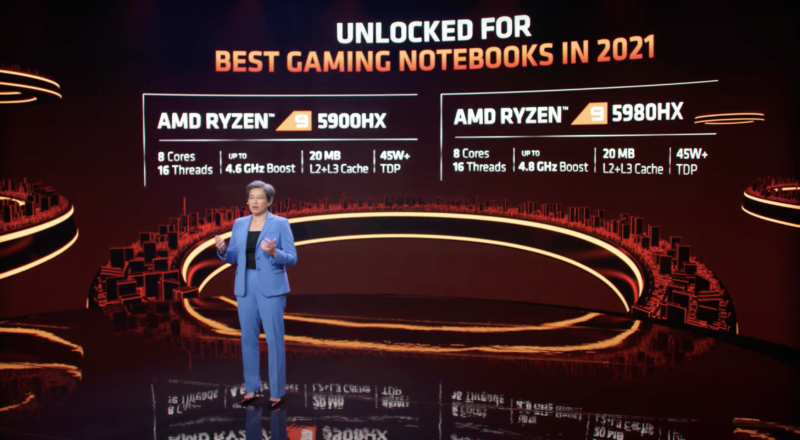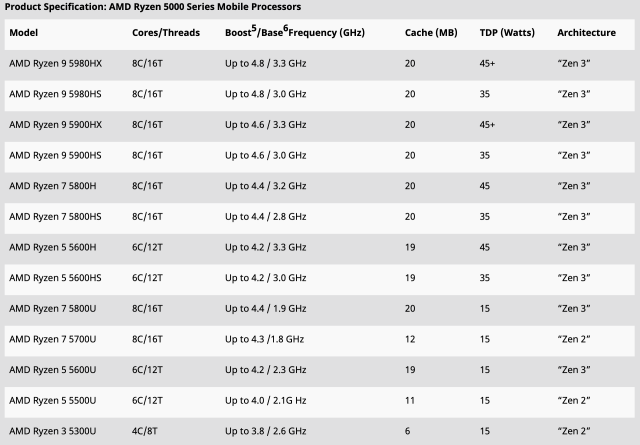
As expected, AMD took to the CES stage this week to announce new laptop CPUs. Most of the new Ryzen 5000 mobile family of chips share similarities with the desktop CPUs the company announced a few months ago, and they'll start shipping with laptops from some of the bigger computer-makers in February.
The new chips are divided into two sub-families, both at least in part based on 7nm Zen 3 tech: there's the H-series, which is meant for high-end, performance-oriented gaming and content creation notebooks, and the U-series, which takes aim at Intel's dominance in the ultraportable space with a greater focus on power efficiency.The lineup's biggest lifters are the Ryzen 9 5980HX and 5980HS. The former is a gaming-oriented chip that will be unlocked for overclocking in some machines. The latter, meanwhile, is tuned more for laptops made for creatives. Both of these (and all but two of the chips in the Ryzen 5000 mobile family) sport eight CPU cores and 16 threads at up to 4.8Hz.
Here's a chart including specs for all the chips announced, from AMD's website:

The U-series lineup also includes 8-core chips, but as you can see, a couple 6-core ones are in there, too. While AMD has been making rival Intel's life difficult in performance-oriented machines of late, Intel still dominates the ultraportable space (for now), so AMD is surely hoping to achieve some growth there. To that point, AMD claims that the 5800U can deliver almost 18 hours of battery life for normal use cases and up to 21 for video playback. (Intel announced its own laptop chips this week, too.)
On the gaming side, AMD says the 5900HX beats Intel's Core i9-10980HK by more than 20 percent in 3DMark, which certainly seems plausible given what we saw on the desktop side—though it would of course be wise to wait and see benchmarks from someone other than AMD.
OEMs have already started announcing laptops with these chips, so we expect to see those illuminating benchmarks as early as next month.
Article From & Read More ( AMD claims new Ryzen 5000 mobile CPUs best Intel for gaming, content creation - Ars Technica )https://ift.tt/3oLk0Xq
Technology

No comments:
Post a Comment